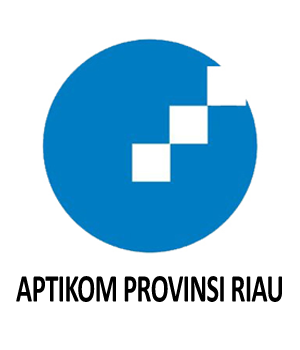GAME PERAKITAN KOMPUTER BERBASIS MOBILE MENGGUNAKAN METODE FINITE STATE MACHINES (FSM)
Abstract
Games are entertainment media in the form of multimedia that is made as attractive as possible that is played using electronic media to provide satisfaction to its users. Aside from being a means of entertainment, games can also be used as a means of learning to increase knowledge. But the development of games that contain elements of education is very difficult to find. Various alternative and programming innovations were carried out to make educational media to facilitate the learning process, including Computer Assembling Games. Computer assembly is to assemble all computer components to become a PC that is ready to use. However, the assembly process is difficult because it requires adequate equipment and space. For that you need a media that can facilitate the process of learning to assemble a computer. This game is made based on Android so it makes it easier for users to play it. The method used in making this game is Finite State Machines (FSM). With the existence of this game is expected to increase knowledge and facilitate the learning process of assembling computers.
Downloads
References
Dian Wahyu Putra, A. Prasita Nugroho, E. W. P. (2016). Game Edukasi Berbasis Android Sebagai Media Pembelajaran Untuk Anak Usia Dini, 1(1), 46–58.
Zamrony P. Juhara. (2016). Panduan Lengkap Pemrograman Android. (P. S. Wibowo, Ed.). Yogyakarta: CV. ANDI OFFSET.
H, N. S. (2015). Pemrograman Aplikasi Mobile Smartphone Dan Tablet PC Berbasis Android. (N. S. H, Ed.) (Revisi). Bandung: Informatika Bandung.
Hasnul Arifin. (2011). Kitab Suci Teknisi Komputer. Yogyakarta: MediaKom.
Sihite, B., Samopa, F., & Sani, A. (2013). Pembuatan Aplikasi 3D Viewer Mobile dengan Menggunakan Teknologi Virtual Reality, 2(2), 397–400.
Rahadi, M. R., Satoto, K. I., & Windasari, I. P. (2016). Perancangan Game Math Adventure Sebagai Media Pembelajaran Matematika Berbasis Android, 4(1), 44–49.
Rosa A., & Shalahuddin, M. (2013). Rekayasa Perangkat Lunak Terstruktur Dan Berorientasi Objek (2end ed.). Bandung : Informatika.
This is an open-access article distributed under the terms of the Creative Commons Attribution-ShareAlike 4.0 International License which permits unrestricted use, distribution, and reproduction in any medium. Users are allowed to read, download, copy, distribute, search, or link to full-text articles in this journal without asking by giving appropriate credit, provide a link to the license, and indicate if changes were made. All of the remix, transform, or build upon the material must distribute the contributions under the same license as the original.















